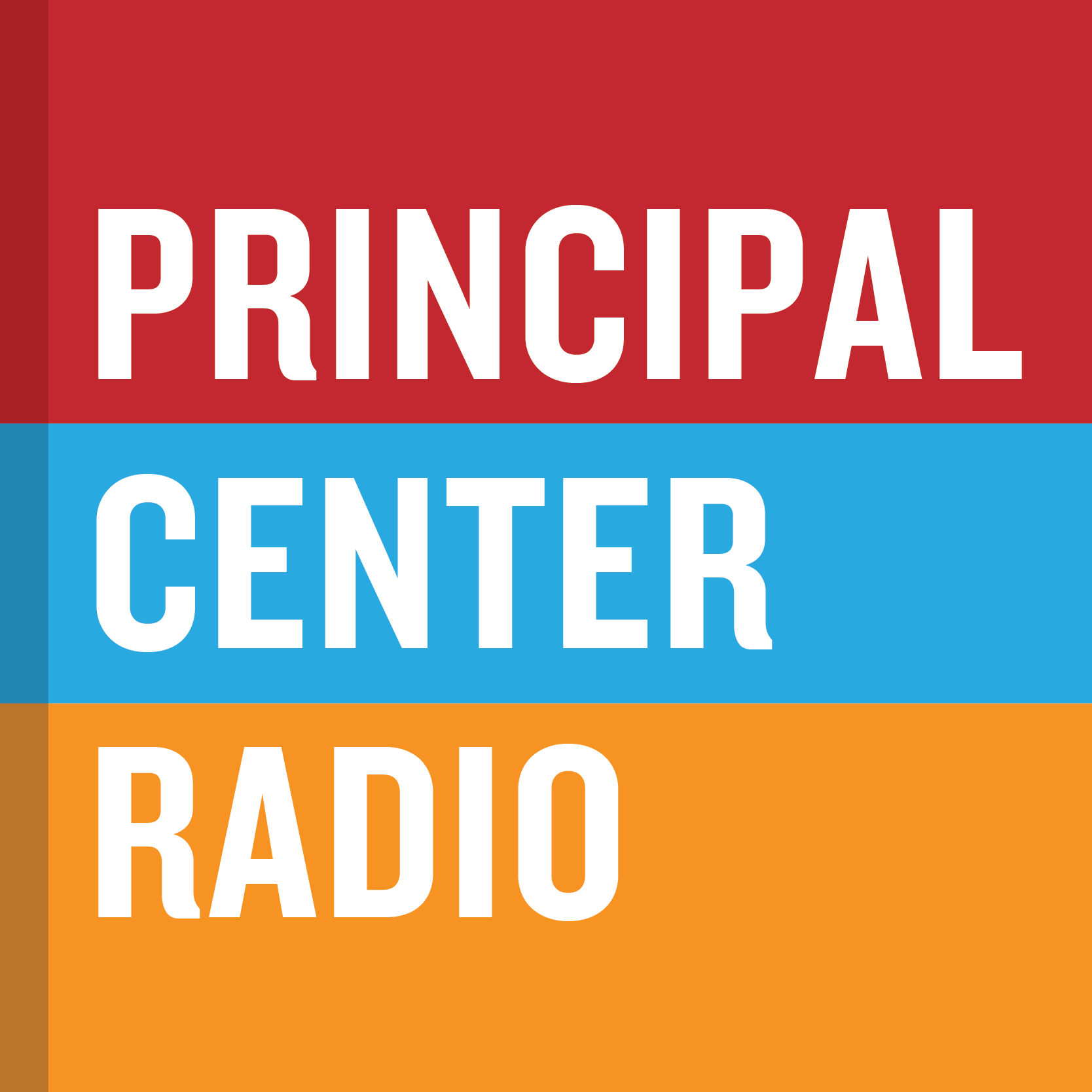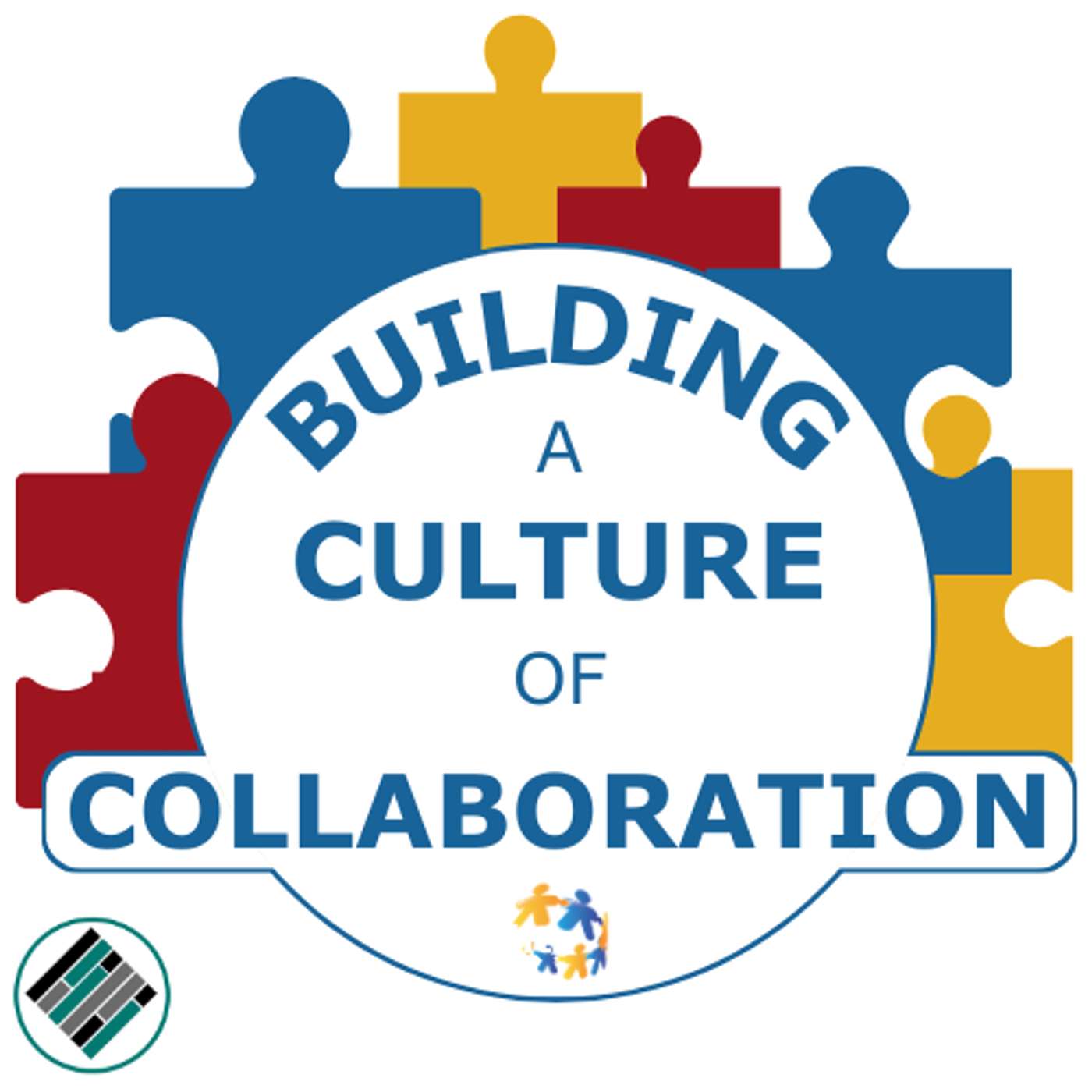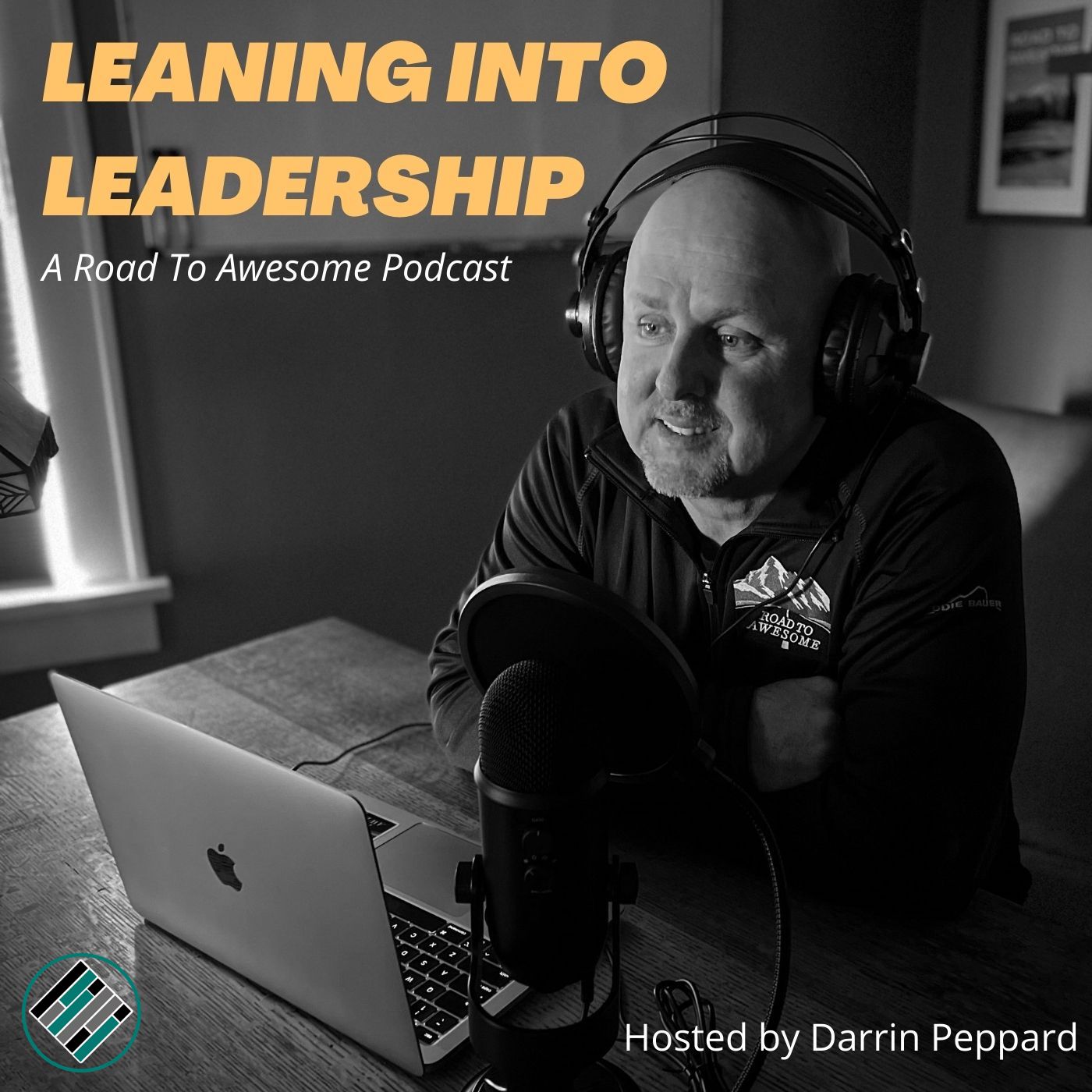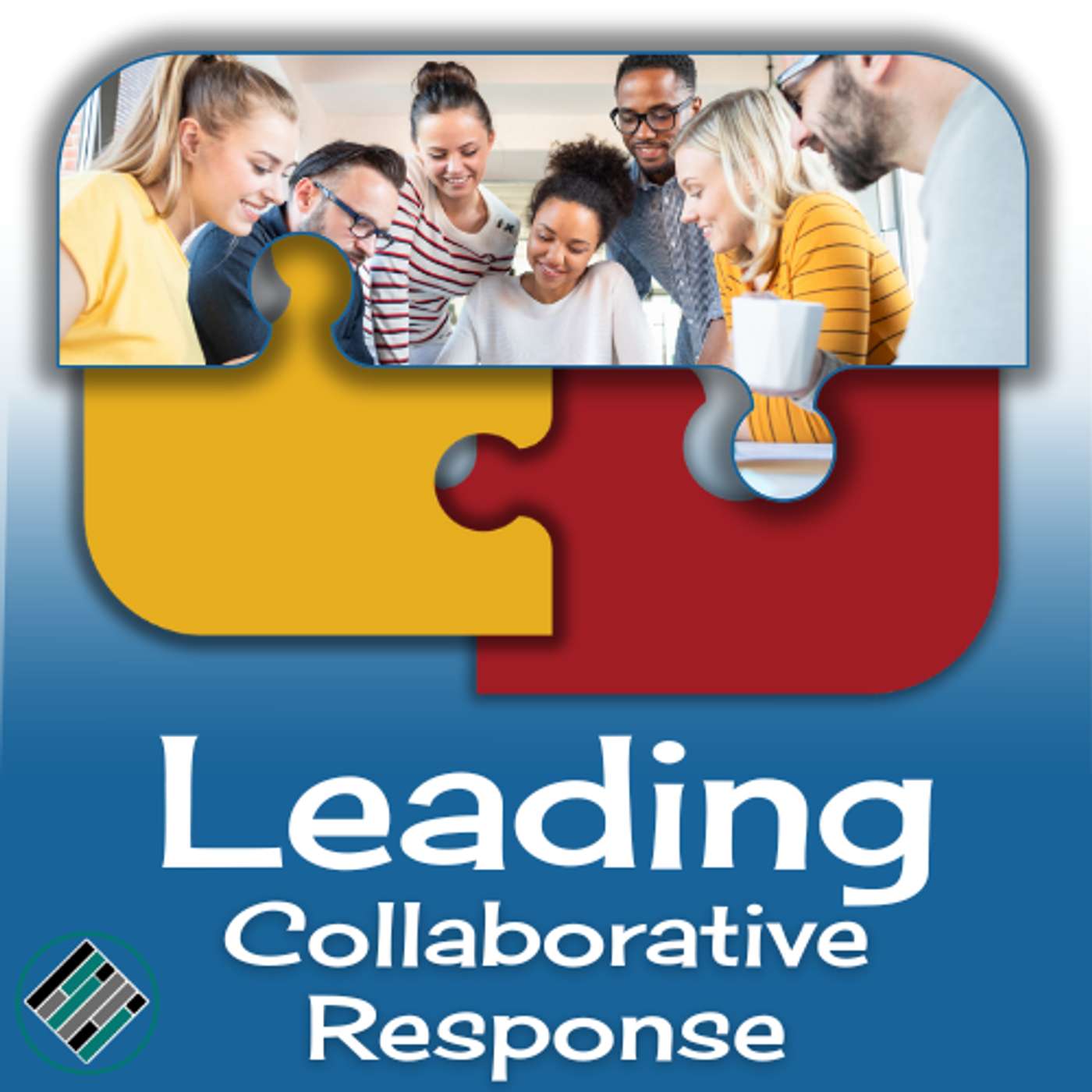
Educational Leadership with Principal JL
Principal JL is an educational leader who explores various topics facing educational leaders today! The Mission of this podcast is to inform and inspire other Educational Leaders on how to be their best for their Schools by honing their skills and talents so they may impact their teachers, staff members, students, parents/guardians, and community members positively for their School District! Come with a Growth Mindset as we journey through Educational Leadership!
Educational Leadership with Principal JL
Episode 23: Leading the Transformation: Coach Tony Kimble's Educational Journey
Coach Tony Kimble's remarkable journey from the football field to educational innovation stands as a powerful testament to how leadership skills transcend specific domains. What began as a young math teacher's desire to coach football evolved into a transformative career spanning over two decades across classrooms, administrative roles, and now, educational consulting.
Tony's candid reflections on his time as a head football coach in Mississippi's competitive Delta region reveal crucial leadership lessons that now inform his approach to educational transformation. The parallels are striking – whether coordinating defensive plays or guiding school improvement, the fundamentals remain consistent: build relationships first, address problems proactively, and create systems that empower others to excel. His experience taught him that avoiding difficult conversations only allows problems to grow, while timely intervention prevents minor issues from becoming major obstacles.
Through his organization Transform One, Tony has developed a methodology focused on identifying areas where educators might be stuck in conformity, helping them renew their approach through strategic use of technology, transforming their practice, and ultimately becoming leaders who can guide others. His particular emphasis on timely feedback resonates deeply with both athletic coaching and classroom instruction – students and teachers alike thrive when they receive specific, meaningful feedback that builds confidence and capacity.
Tony's current project interviewing 50 educators across 50 states for his Transforming Lives podcast has uncovered a powerful truth: while every school faces unique challenges, successful transformations share common elements. Across geographic and demographic differences, the most effective educational leaders demonstrate genuine care for those they serve, possess deep knowledge of improvement strategies, and intentionally surround themselves with talented collaborators who complement their skills.
Tune in to discover why Tony believes educational transformation begins with personal transformation, and how his journey from the sidelines to the classroom to consulting has equipped him with unique insights that can help any educational leader create meaningful, lasting change in their schools and communities.
Connect with Coach Tony Kimble:
Transforming Lives Podcast on YouTube:
Teach Better Mid Roll Network Ad
Click Here to Connect with Principal JL:
Today, we're joined by a true game-changer in education Coach Tony Kimble. With over 20 years in the field, tony has worn many hats math teacher, instructional coach, technology consultant, project manager and even football coach. Now, as the founder of Transform One, he's on a mission to modernize education and empower school leaders. In this episode, we explore his journey from the classroom to coaching, his passion for leadership and his latest adventure interviewing 50 educators from 50 states on his Transforming Lives podcast. I'm excited to have you be a part of this conversation and I think you're really going to enjoy it. Now here's my conversation with Coach Tony Kimble. Hey there, educational leaders, I'm excited to have you guys back for another great episode. Leaders, I'm excited to have you guys back for another great episode. Today's episode I'm going to bring in Coach Tony Kimble.
Coach Tony Kimble:Coach, it's great to have you on the show, thank you. Thank you for having me on. I really appreciate it. Look forward to the conversation.
Principal JL:All right, coach, we're going to go ahead, we're going to dive right in. I'd like you to share a bit about your journey. What inspired you to get into education? What kind of propelled you into that journey?
Coach Tony Kimble:Well, I would like to say I started out wanting to coach football. I love football. You get to a point playing college ball. You figure out that, hey, this is not going to the NFL or anything beyond college. Um, they get to a point, uh, playing college ball. You figure out that, hey, you know, this is not going to the NFL or anything beyond college. So, uh, I had a excellent uh advisor that kind of directed me to into education. So I thought that was the next way to continue on and I just started out, um, in in North Carolina, uh, from Mississippi. But I started out, uh, coaching in North Carolina, uh, from Mississippi. But I started out coaching in North Carolina and, um, yeah, I was in a.
Coach Tony Kimble:I grew up in a small rural town Uh, it was May, I think. We had a thousand people. I went to. I went to start coaching in a school that has a thousand students. So it was like, oh, this is a different spiel here, like this is different. So, just starting out this journey, it was just to coach football. I'll be honest, I think I'm at a point now I can say it was to coach football, but it was much more involved in that process.
Principal JL:Yeah, I relate to that coach. Really, that's honestly what got me into education as well is was getting into coaching, actually coach football for 17 years total, so it wasn't just. You know, I coached football about six years before I got into teaching and coaching my own program, and so I kind of relate to that. One of the real reasons why I got into education was, hey, I knew I was going to have an impact, but I really wanted to coach football too. But from that experience I kind of learned like, hmm, maybe there's more that I could do. So let's talk about that. Let's talk about how. What motivated you from going hey, I'm moving in from into the classroom, but I'm going to go into these leadership roles. You know, you can talk about coaching, you can talk about all the different leadership roles that you might've, uh, aspired into um through your educational career.
Coach Tony Kimble:Right. So, um, again, you know, in North Carolina I was, of course, going through that assistant, uh, coaching role. So I was a young guy, you had your introductory math classes, so I had those kids that no one wanted to teach and they put them in my classroom and I learned to teach. I didn't have a—I was pure math. I didn't have education, didn't take any educational courses. So it was like I was going in and man, thankful that there were no cameras or anything like that during that time, because I was awful, just got things done.
Coach Tony Kimble:But you know, transitioning, I moved back to my hometown and started coaching football there and became a math teacher. And you know, coaching everything football, basketball, track, powerlifting, every sport that they had to kind of supplement the income At that time. That was a notable thing to do and it got to a point where I was a defensive coordinator and it got to the point where you have that urge to become a head coach of a football team. Let me tell you, that's a different world. Where you are a defensive coordinator, you're laying out the game plan for the your, your squad, and you, you know, taking care of that side of the ball. But when you have to take care of both sides of the ball parents, administration, all these other people. It was an eye-opener, that being a leader was different. I thought that I was ready, but I remember one of our coaching mentors tried to tell me hey, this is a different world as a head coach. He was a successful head coach of state championships two, three, I think he had at the time and he tried to walk me through that process of being a head coach. There are different levels of facets to the position where you can coach defense well, but you got to be able to navigate through the lines of your assistant coaches, school board members, all of these people that have an impact on your team, parents and those people in the stands.
Coach Tony Kimble:So I got a beginning stages of leadership that's how I want to phrase it, just the beginning stages. And the crazy thing about that was, you know, I did a two-year stint as a head football coach, made the playoffs both years, and I said you know what? I'm not doing leadership anymore. My wife convinced me to go back and get my administration degree and it was like why didn't I learn this before? I would have been a better head coach in that process. So and I transitioned out from you know about to graduate from the university and preparing to be a head coach again or a principal, and I said you know what? I want? To become a consultant. Someone reached out and it was like well, I'm going to take this because I feel like if I become a consultant, I would become a better principal when it's time. And that's 10 years. So this is the 21st year in education and 10 of those years is in the consulting role.
Principal JL:Yeah, and so we're going to get to all that eventually, right?
Coach Tony Kimble:Yes so.
Principal JL:I want to kind of take you back into your two years of being a head coach in the Mississippi Delta, kind of explain what the Mississippi Delta type of football is like, because from what I understand understand it's pretty competitive football. Am I wrong on that?
Coach Tony Kimble:no, you're not wrong, it's probably probably some of the best athletes in the world. Uh, and there are some highways that are unique to that area is highway 81, highway one, um, that have just athletes. It's just ridiculous. It's things that you can't coach. You can go out and have a scheme, you can game plan, but there's just some things where you can just give a child a ball and they just make plays and you're just like, well, okay, all right, we'll run that play again, whatever it was, or defensively.
Principal JL:So it taught me the value of people so we are working with athletes that we call they have the it factor right, they, they just got it. You just can't coach it, you can't teach it. They have it and those are. They're really fun to to coach. I've coached a couple of those in my career as well. But you know, when you talk about, you know, coaching in the Mississippi Delta for the two years as a head coach. What lessons did you learn? Coaching that carries you into your work and education. So out of that two years, what did you learn through that?
Coach Tony Kimble:So for me, the value going back to the value of people and relationships it doesn't matter how much you know if you cannot establish that relationship in the context of what is needed, whether that's being a father figure or that's being a leader and leading them to a point and having difficult conversations and not avoiding those difficult conversations, Because if you avoid them, they come back around and you have to address them. Nothing changes if you don't address and it may not be obvious. I remember some situations with some of my assistant coaches and it was like, okay, I see this way before it's happening, At what point am I going to address it? And I never addressed it and it became a headache Second year. So it taught me to address potential problems early and not just address them, but it is to take a sledgehammer on some of the things. Yeah, so that that I think that's one thing too is is some things need not a hammer, but they need a sledgehammer to, to, to eradicate them.
Principal JL:So you're kind of leading into the next one. What are some parallels for being a leader as a football coach and then to leading educators in schools? What are some parallels that you can can talk about? Oh yeah.
Coach Tony Kimble:So it's. You know, a lot of times coaches get the bad rap of OK, you're not, you're coaching athletics, that's athletics, it's you're, you're, you're, you're not dealing with academics. But there there are some commonalities that are there. That's okay, but leadership is leadership. So how you approach coaching and the role of a school leader is the same, it's culture. What is your culture within those small pockets within your coaching staff? How are you addressing and how do they view you? Because how they view you is how they're going to respond and if they don't view you in a particular way, they are not going to be as productive as they need to be and they're going to be not given their all. So you have to address that.
Coach Tony Kimble:It's the same way in leadership, in school. Leadership is that you have to address it in such a way that you build the best out of them. Is that you have to address it in such a way that you build the best out of them? And then also, as a leader, you have to lead. I know that's simple, but you have to lead when people don't want to lead. So that comes down to I remember a coach coming to me about it's fourth down and whatever. And we need. I need you to call the play. What do you think I should call right here, and you have to have that be in the moment of the game to make the decision. Same way in supporting schools, leaders come up and ask you what's your approach to this particular topic with my teacher. This teacher is reluctant, this teacher is not producing well, and you have to have the difficult conversations because you're now a mediator between the teacher and the administrator and you have to be like, have those difficult conversations.
Principal JL:Yeah, I agree with you 100%. I think you kind of mentioned something there. Hey, you see an issue, take care of it right away. Be proactive and not reactive to those issues, because when you are reactive to issues, it becomes 10 times worse than it would have been if you would have just been proactive about it. And that's one thing I know in my educational leadership journey. I really try to take proactive steps to take care of things right away so they don't become something that festers and becomes worse later on. So that's something that you know I really try as well, and it's really interesting.
Principal JL:You're learning a lot of these things as a coach, and so did I, and so the way I lead is through my experiences, not just as an educator, but also through my leadership journey in the military and my leadership journey as a head football and wrestling coach. And you know I did some track on the side as well. And so I really want to kind of talk about the next thing. One thing that I that I know you have done is you're helping schools modernize the teaching strategies. Can you tell me more about the transform one? So what took you from the? You know you kind of kind of led into it a little bit, but I want to go back to that about the transform one and your mission. What is that all about?
Coach Tony Kimble:So it's about? It's really four things. It's looking at identifying conformity. It's looking at identifying conformity, renewing, then also transforming and then leading. So what it means is is, basically, you find conformity and conformity can be basically so.
Coach Tony Kimble:Let's say, we're looking at instruction, okay, so you got a dynamic teacher, all right. And that dynamic teacher let's say she see, or he is in English Well, all right, they're having trouble with getting their papers back to their students. They are not getting feedback. So my approach is how can we take technology and use it as a pathway to not change your knowledge base? Right, so you're dynamic, you understand how to structure a paragraph, but now we need to look at how do we transform it into using technology. To, number one, provide feedback, because that is one of the most important components of a lesson. Did the students receive feedback? And then showing teachers, educators, how to do that in the most effective way? Because, again, I learned this through coaching football on Fridays, giving a test on Friday and then, some kind of way, getting that test score back and that paper back to that student before Wednesday, because they needed it way beforehand, and I learned to use technology to take it Before they left. They knew what grade they got, because that's all they cared about. They cared about the grade. Whether they missed question seven or eight, they don't really care. Did I make an 80? Yeah, they miss question seven or eight, they don't really care. Did I make? Did I make an 80? Yeah.
Coach Tony Kimble:So that's the approach of not trying to completely transform a teacher, but it's looking at where's the conformity yet and then changing the person's mind about the approach and saying, hey, this is the approach that that would be more effective for you and it has a has multiple perspectives to look at. Well, you're not getting the papers back in time to the students, and then the students have apathy at this point because they know you're not going to get the paper back to them. So this impact has different angles. And then also, at that point where we renew how they look at it, we talk about transforming. At that point they can transform. How they look at it, we talk about transforming. At that point they can transform and then they're able to become that leader, to lead that in their aspect. So that's how the approach, when we talk about transform One, is transforming one person, becoming an advocate for the change.
Principal JL:Awesome. I really liked how you kind of talked about feedback. Right, I was a math teacher as well and you wanted to get that feedback to them as quickly as possible so they knew and understood what they didn't know or what they didn't know and so they can make the adjustments. And if you don't get them that feedback, like you said, that apathy will set in and they're like well, why should I do this? Because I'm not going to know? Or if you're not giving stuff back for days on end, you have just lost that student's ability to learn because they're not going to understand what they know and what they don't know. If you know one teacher at a time to help them have a bigger impact in their classroom, so I really think that's awesome. So what are some of the biggest challenges school faces today? How do you help them navigate through these challenges?
Coach Tony Kimble:I want to look at retention. So a lot of the schools that I support have supported it is in rural areas, and some of those are in the Mississippi Delta, but then also they're kind of spread out over Mississippi and many times it's due to the fact of the lack of support. And that lack of support is and it goes back to this whole idea of identifying like, where's the conformity at, and once you can identify that this is not a blazing building that we're facing, but this is just an electrical problem that's happening down on the lower level of the building and if we fix this part right here, it's nothing but smoke. That's happening there Now. There's fire there, but there's smoke, and this is how we fix it, and and and and.
Coach Tony Kimble:Taking that approach to looking at all right, how do we get teachers to stay at a school? And it's through support, if they can see themselves differently, instead of sometimes feeling like, well, I can't do this, I can't teach 20 kids at a time and my workload is 150 kids. If they're successful in that workload, they feel like Superman or Superwoman and they take it on. So just helping school districts hone in that teacher capacity and once that teacher capacity happens, and personal growth too.
Principal JL:That's the unspoken thing, that's the unspoken thing Personal growth is. You know it's not put down on the paper or the work report, but it's building their confidence within their teacher. To say you know what I can take this on and I'm successful at it school leaders can implement to help their teachers improve their own teaching but also improve the culture of the school is how you build their capacity, how you support them to become better and put more tools in the toolbox, because when they are confident in what they do, they are more than likely going to stay at it, going to stay working at it, because they know they are supported. Is there any other strategies that a school leader that may be listening to this podcast right now that can implement to improve that engagement in their school as well?
Coach Tony Kimble:I think it's feedback. Going back to this whole idea of feedback, how small we think that is in the bigger picture of OK, you at the point of data, that's a problem. So they need to have feedback and it is not a hold your hand type situation. But it is OK. You've done an excellent job on the first five minutes of your lesson. You've done an excellent job on the first five minutes of your lesson and that's simple as that might sound. That builds the confidence of that teacher and I guess I'm speaking in reference to first-year teachers in that context.
Coach Tony Kimble:Sometimes a veteran teacher is like okay, I was good the first five minutes. Like what else? What else do I need to do? I was good first five minutes, like what else? What else do I need to do? But then also saying you know, I'm proud of how you've supported the teacher next door. Those little little feedbacks are powerful and helping them kind of navigate their day, because a lot of their feedback is from their students. Like you know, my, my day is directed by how well Tony acted in the class today or how second period was, and just that positive feedback helps them to move forward.
Principal JL:I really liked. I think positive feedback is something that is important, but it's got to be intentional too, right. It's got to be something that is intentional and meaningful because they'll take that and run with it every time. You're not just leading changes in school, but you're also transforming lives through a podcast, right? So you have your transforming lives podcast. You have a special series right now 50 educators from 50 states. Can you share what inspired this series and what have you learned from it so far?
Coach Tony Kimble:Yeah, so for the last 10 years I've been educational consultant in terms of for mathematics, also for technology. This August I stepped away from that role and it was more just. You know, I got to do something different and there was some kind of some restrictions and stepping away. But I said, you know what? I have to keep my tools sharpened, because I wasn't necessarily in a school nor was I serving school districts, so I had to look at a way to, you know, keep this thing moving. And I said, you know what? I'm just going to talk to educators. And you know I didn't understand what it looked like at first. I just know I'm going to talk to educators across the world.
Coach Tony Kimble:But then I started to kind of write out that plan and developing that plan I recognized, okay, let's wait on the world, let's kind of look at it in a smaller context. And at that point I started to look at well, I can talk to school leaders and find out more about what makes a successful school. Well, I said, oh, that sounds good. What's my approach in terms of transformation? So I began to kind of narrow that down, niche down, and say, you know what I want to look at? You know school leaders that have transformed school districts and what are they doing? Is there a common thread amongst those school districts? And I want to look at it across our United States and see you know, is it different? Is it a different approach that is taking in the Northeastern part of our state? In the Southwest, in the Southeast, is there a different approach? In the southwest, in the southeast, is there a different approach? And what I'm finding out is that there are common threads that exist.
Coach Tony Kimble:One is relationships. As I'm talking to leaders from Texas, from California, of course you, nebraska, mississippi, course you, nebraska, mississippi, florida and all these places, I'm finding out that different regions, but the central part of who they are is number one caring about making a difference in the lives of the people that they serve. That's kind of the number one thing. But then also it is having this knowledge base of how to do it. It's not just excitement, it's not just enthusiasm, but having the capacity to change it and then surrounding themselves with people around, surrounding themselves with knowledgeable people, to push forth and make that change. So you know, before we talk about uh, systems, it's about relationships. Once you develop the relationships, you, you develop systems, you develop your culture. Those are resounding words and topics that have shown up in the leaders that I've uh, that I've talked about, talked to over the last three months, four months.
Principal JL:Do you have a particular story from this process that you got that sticks out the most you know through your moments of doing these interviews with all these different educators from different states? Is there one story that kind of like sticks out in your mind right now?
Coach Tony Kimble:All of them. I can't just and I was smart now because what I happen is because I still kind of have this you know, once you talk to one leader, you kind of you know you might not speak to them, you know every day, but they still reach out and still embrace your content. But I can kind of wrap this up of saying, kind of wrap this together, saying that each person is different. It is not easy when I say to you each person is different and transformation comes in more boxes than Amazon, I think that's the best way that I can express that that it's just not one story. Each person is very unique to that challenge.
Principal JL:So what I'm hearing you say is everybody has their own unique way to help transform lives. They have their own unique way of doing the things, of building culture building, and it's going to be unique to their situations. And I can get on board with that, because every school district is unique. Every school district is different. You serve a certain clientele within your community and it's not the same from one region to the next. But what is the same is that this work can be done in a way that transform lives. You know it's just going to look different here because this is their core values and what they believe. They get the same results, and so that's kind of what I'm hearing you say. If our listeners want to check out your work, you know what is the best place to find your podcast or just to find you in general platforms again.
Coach Tony Kimble:You know apple uh, spotify, all of those uh, but I encourage you to go to youtube uh and check that out uh, because we're trying to build that.
Principal JL:Focus on youtube, yeah you bet, and I'm going to uh put your youtube channel link in the show notes for this show, so make it real easy for people to click on it, find, find you and see all the awesome work that you are doing. We're going to kind of wrap this episode up here. What is one final piece of advice you'd give educational leaders who are looking to transform their schools and make a real impact?
Coach Tony Kimble:Right. So the first person I would say to look at even in the process of starting the series that I started was the first person that has to transform is yourself and looking at doing the hard work, because no one is going to come rescue you through this process. It is difficult conversations that I had to have with myself and saying, ok, do I have the courage enough to reach out to an educator in another state or a superintendent in another state? So that confidence that was built up prior to you know, in my prior work, where I'm not afraid to sit down with a superintendent and have that conversation around it, and there was a time that I didn't, would not approach it because I didn't feel like I was able to sit in a seat. But that's not the approach. It's building up the courage, building up your capacity to say, hey, I am able to sit down with you and have the conversation and through that conversation you gain knowledge. But you push knowledge out to those that may be sitting in the seat of isolation and once they hear the stories and understand that you're not alone, and then also not that you're not alone, but you can do it too.
Coach Tony Kimble:If it happened in Nebraska, if it happened in Texas, it can happen in Mississippi as well. And it's just having that courage to say you know what, I can do it as well. Let me connect with this person and find out what they did. What strategy did you use? Is this useful in my state? And if it is useful, I'm going to step forward and do it. So the podcast is help really define that. You know, you can be a beacon of light for people and help them see their journey differently and they don't have to stay at that slums or that negative mindset that you can make it happen. And um and connecting with you, I can't say that this would have happened any other way than do the podcast lane.
Principal JL:No, I agree, that's kind of how we met Tony is through our podcast adventures and getting to know each other, following each other's work. All I can say is you're doing outstanding job. I really enjoy the episodes that you're putting out Not to say that I'm on one, but I'm really humbled to be a part of your journey and it's really humbling to have you be a part of my journey as well, to step out and and to do these things, because you're going to have that self doubt hey, can I really do that? I'll have this imposter syndrome. Hey, is this really really? Am I really doing this?
Principal JL:But you have to have belief in yourself that, hey, I can, you know, help other people. It's kind of what this podcast is about and you're kind of doing the same thing is how can I help impact other people? And specifically for you, it's, you know, you know educational leaders as well as math instructors, because you have a whole another series for teaching strategies for math. So I want to kind of point that out. He's got some other work too that he's doing as well as not just the educational leadership work as well. So, tony, it's been a pleasure and it's been really great to have you on today's show. You know really thankful and humbled that you came and took the time today
Coach Tony Kimble:thank you
Principal JL:Thank you, what an incredible conversation with Coach Tony Kimble. His passion for education, leadership and transformation is truly inspiring. From his years in the classroom to his impact as a coach and a consultant and now his nationwide podcast journey, tony continues to push the boundaries of what's possible in education. If you enjoyed this episode, be sure to check out Tony's Transforming Lives podcast and follow his journey as he interviews 50 educators across 50 states. And, as always, don't forget to subscribe, rate, leave a review and share this episode with fellow educators and leaders who would benefit from these insights. Until next time, keep getting 1% better.
Podcasts we love
Check out these other fine podcasts recommended by us, not an algorithm.

The Empowered Principal® Podcast
Angela Kelly - Education Podcast Network
Principal Center Radio
Justin Baeder
The Jordan Harbinger Show
Jordan Harbinger
The Dave Ramsey Show
Ramsey Network
Against the Rules: The Big Short Companion
Pushkin Industries
Changing the Narrative
Joe Sanfelippo
Urban Principal: Leadership Lessons
Bret Anderson
Building a Culture of Collaboration
Jigsaw Learning
The Interview Chair
Jimmy Casas
Leaning into Leadership
Darrin Peppard
Making Key Changes
Lori Schwartz Reichl
Leading Collaborative Response
Jigsaw Learning
Catching Up with Casey
Casey Watts, Clarity-Driven CEO & Leader
2Principals Podcast
Kevin Jost & Jason Paurus
Proud Principals Podcast with Tony Cattani
Tony Cattani
The Out of the Trenches Podcast
outofthetrenches
